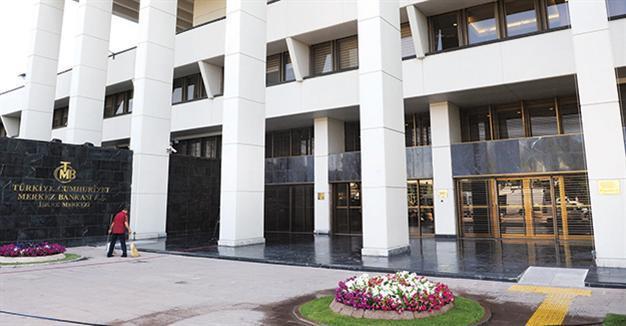Turkish Central Bank cuts rates five months in a row
ANKARA

Turkey’s Central Bank cut the overnight lending rate, the highest of the multiple rates it uses to set policy, by 25 basis points to 8.75 percent in line with expectations, while it kept its benchmark one-week repo rate on hold after a failed coup attempt on July 15, which has derailed the markets.
The bank said it would maintain tight monetary policy given inflation expectations, after cutting interest rates for the fifth straight month, in a written statement on July 19.
The bank also noted it would take measured steps toward policy simplification.
“Recently, domestic developments have led to fluctuations in financial markets. The [Monetary Policy] Committee assesses that the recent liquidity measures have alleviated the volatility in financial markets.
Moreover, the tight monetary policy stance, the cautious macro-prudential policies and the effective use of the policy instruments laid out in the road map published in August 2015 have increased the resilience of the economy against shocks. Also considering its contribution to the effectiveness of monetary policy, the committee decided to take a measured and cautious step towards simplification,” said the bank.
“The committee has indicated that inflation may display a marked increase in the short term due to developments in unprocessed food and tobacco prices. Meanwhile, the core inflation trend is expected to improve gradually. Yet, the developments in inflation outlook necessitate the maintenance of a tight liquidity stance,” warned the bank, adding that future monetary policy decisions would be conditional on the inflation outlook.
Economy Minister Nihat Zeybekci told Reuters in an interview late July 18 he expected the Central Bank to continue with “bold” rate cuts, adding he would understand if it took no action this time following the coup attempt.
Following the interest rate decision, the Turkish Lira was little changed on the day, at 2.9780 from the previous session’s close of 2.9755. It however tested over 3 after Turkey’s Higher Education Board (YÖK) demanded the resignation of 1,557 deans on duty at all private and state universities late July 19.
Turkish stocks, however, fell 7.1 percent and bond yields rose on July 18 when the country’s markets re-opened after the failed coup attempt on July 15.
Turkish stocks posted their biggest daily fall in two-and-a-half years, with tourism-related stocks and banking stocks faring worst, although they rebounded on July 19.
Following the failed coup attempt, Moody’s said late July 18 it was reviewing Turkey’s credit rating for a possible downgrade after the attempted military coup on the weekend.
A one-notch downgrade from the current Baa3 rating would push the government’s rating down into “speculative” or junk status.
BCG Partners Chief Economist Özgür Atuğ said that Turkey has just overcome a failed coup attempts and then received the note from Moody’s.
“At the same time, the inflation rose to over 7.5 percent by the end of June and seems to rise over 8 percent in July. We believe that the Central Bank should adopt a more prudential monetary policy,” he said, as quoted by Reuters.
 Turkey’s Central Bank cut the overnight lending rate, the highest of the multiple rates it uses to set policy, by 25 basis points to 8.75 percent in line with expectations, while it kept its benchmark one-week repo rate on hold after a failed coup attempt on July 15, which has derailed the markets.
Turkey’s Central Bank cut the overnight lending rate, the highest of the multiple rates it uses to set policy, by 25 basis points to 8.75 percent in line with expectations, while it kept its benchmark one-week repo rate on hold after a failed coup attempt on July 15, which has derailed the markets.